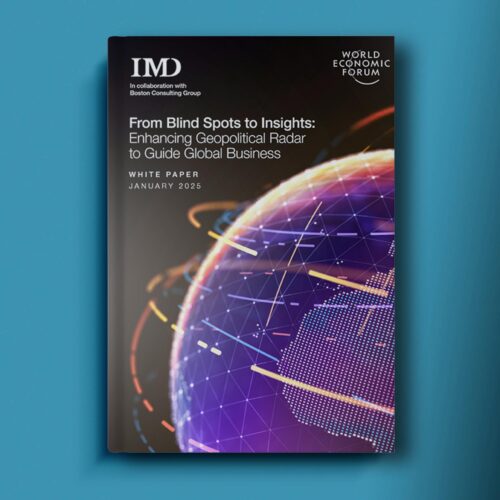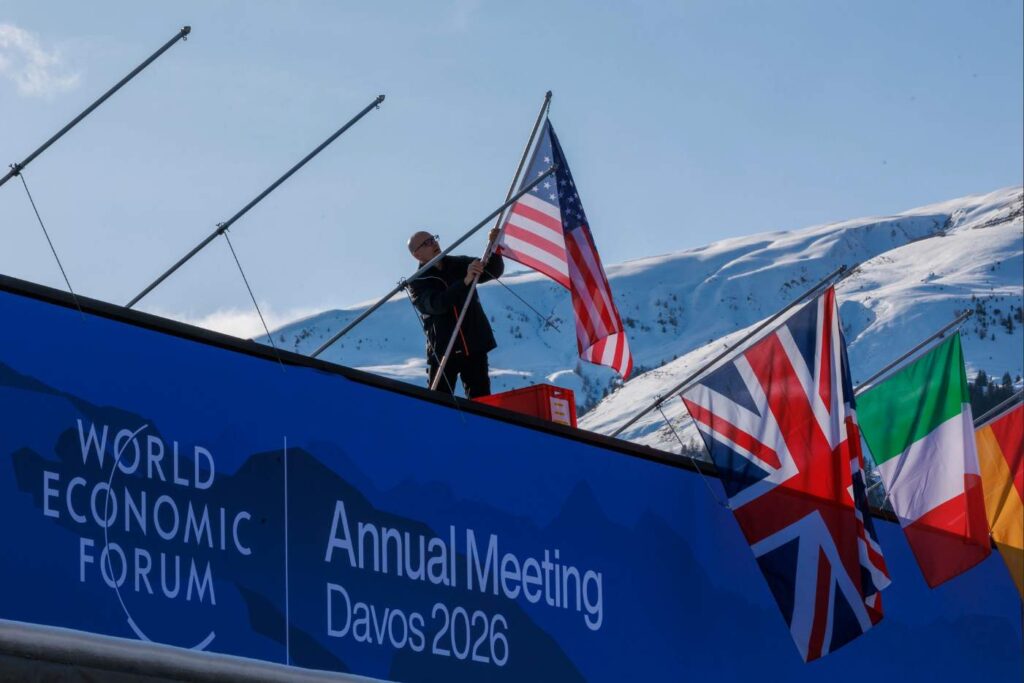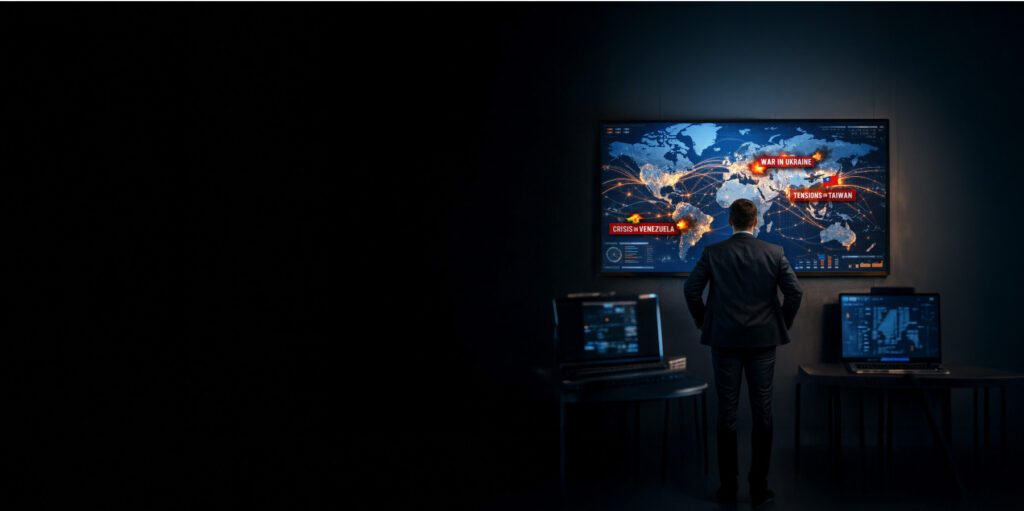
Optimism as strategy
Countries building ecosystems where government vision, business innovation, and investor confidence reinforce each other to gain competitive advantage through strategic optimism.

In an era of rising economic nationalism and intensifying rivalries, business leaders with extensive cross-border operations must develop sharper agility and foresight. Their ability to make informed decisions in this volatile environment hinges on the strength of their so-called geopolitical radar – their capacity to effectively track and proactively assess these shifting dynamics.
This requires a fundamental shift in mindset from relying on backward-looking, experience-driven assessments of geopolitical risks to embracing a more forward-looking tracking of geopolitical dynamics, combined with rigorous scenario planning.
This white paper, the result of collaboration between IMD, Boston Consulting Group and the World Economic Forum, provides a status report on how firms are enhancing their detection, understanding and assessment of the many geopolitical factors that have emerged over the past decade.

Countries building ecosystems where government vision, business innovation, and investor confidence reinforce each other to gain competitive advantage through strategic optimism.

From Trump and transatlantic tensions to AI’s reality check and sustainability’s reinvention, Davos 2026 signals a shift toward values-based pragmatism.

South Korea continues to invest heavily in science and technology, yet a climate of entrepreneurial decline envelops it. What takeaways are there across the board for leaders in other economies?

In turbulent times, companies can justify their investments in geopolitical assets by moving beyond risk mitigation and using foresight to gain competitive advantage and create value.

The US President is gouging out chunks of America’s long-established economic data apparatus because he doesn’t like what he sees. It’s unlikely to end well.

In this episode of Leaders Unplugged, IMD President David Bach speaks with Rolf Habben Jansen, CEO of Hapag-Lloyd, about leading a global shipping giant through geopolitical tension, climate pressure, and permanent uncertainty, into the future of global trade.

Explore first person business intelligence from top minds curated for a global executive audience